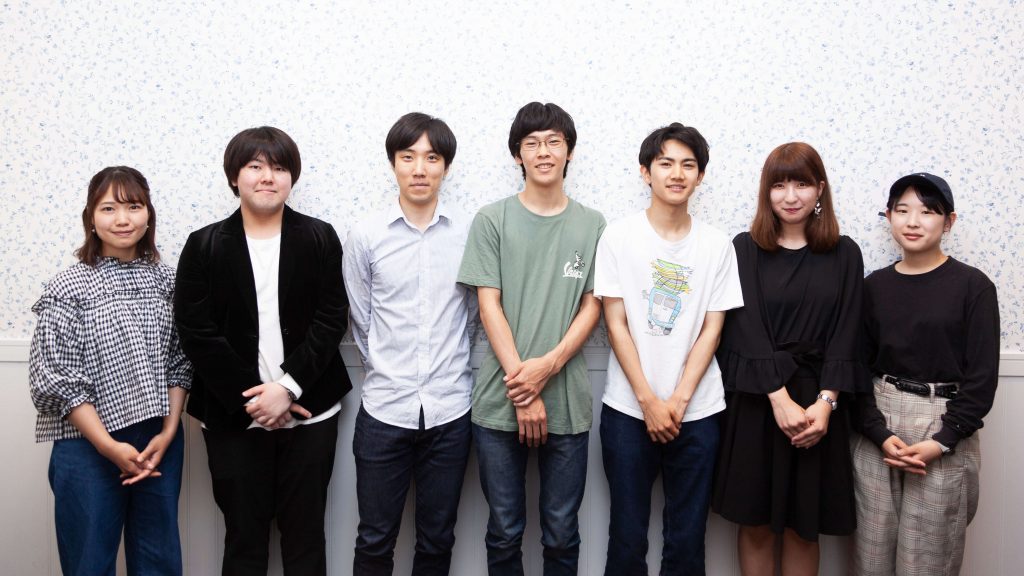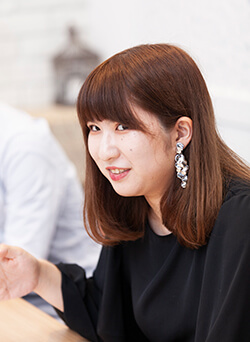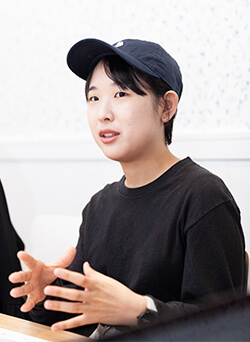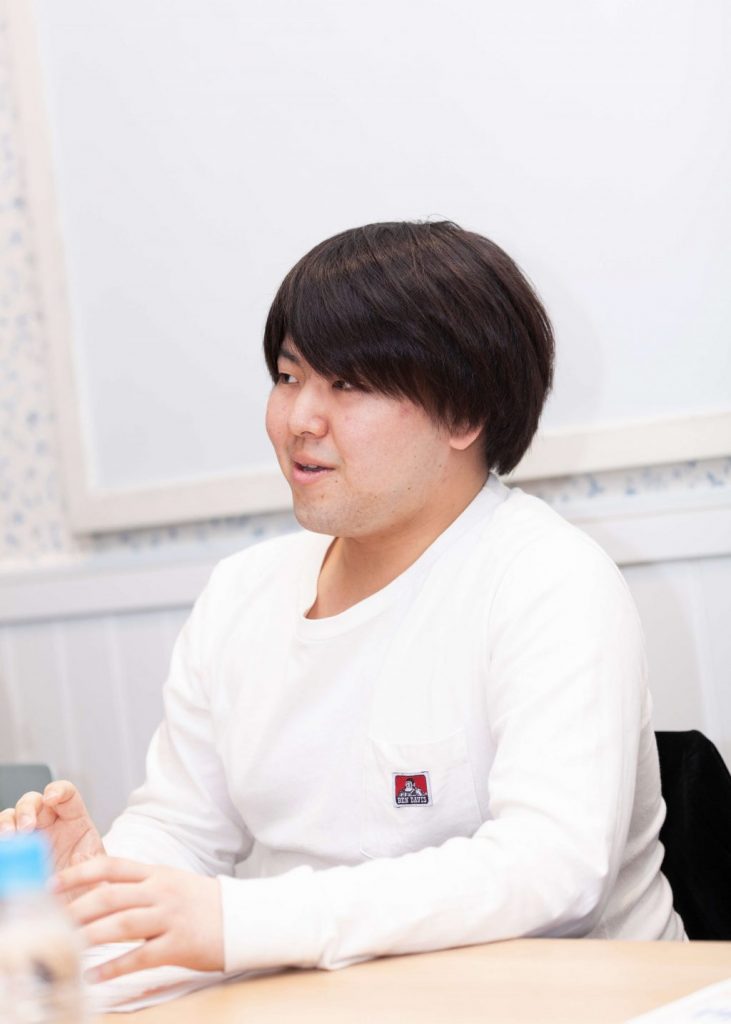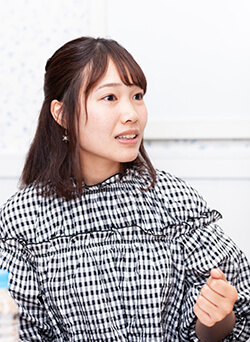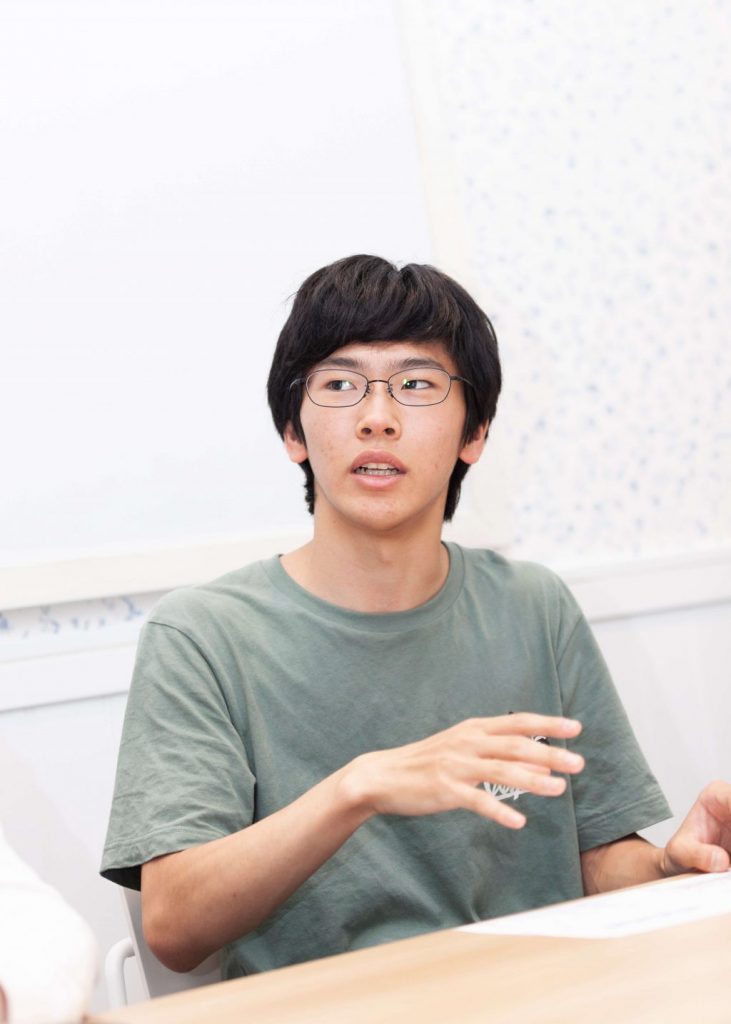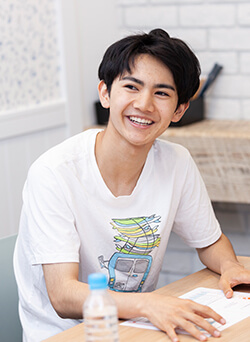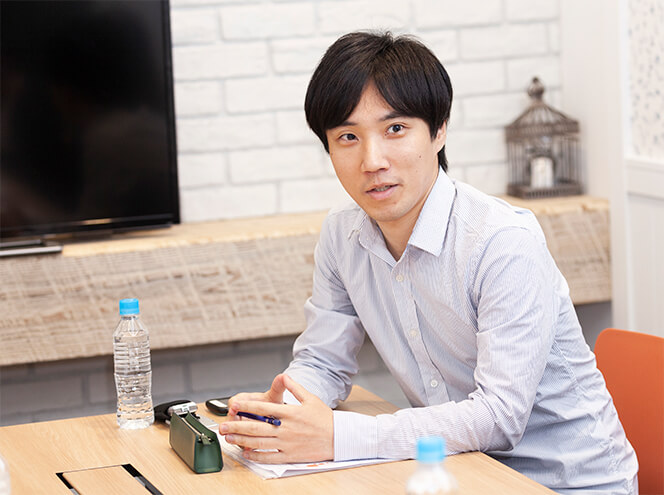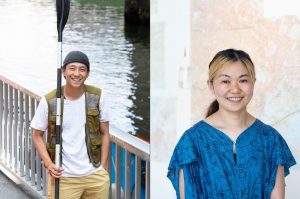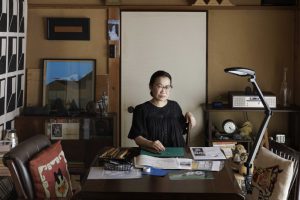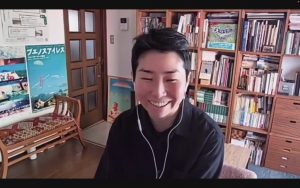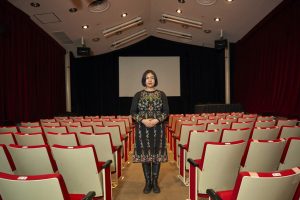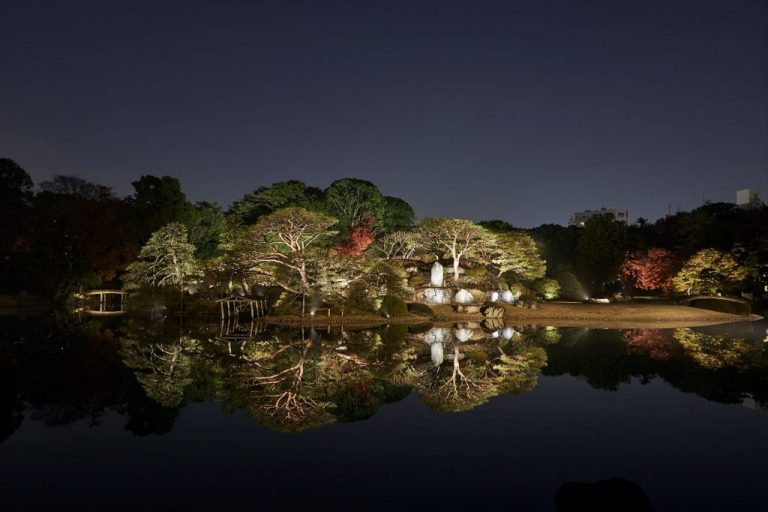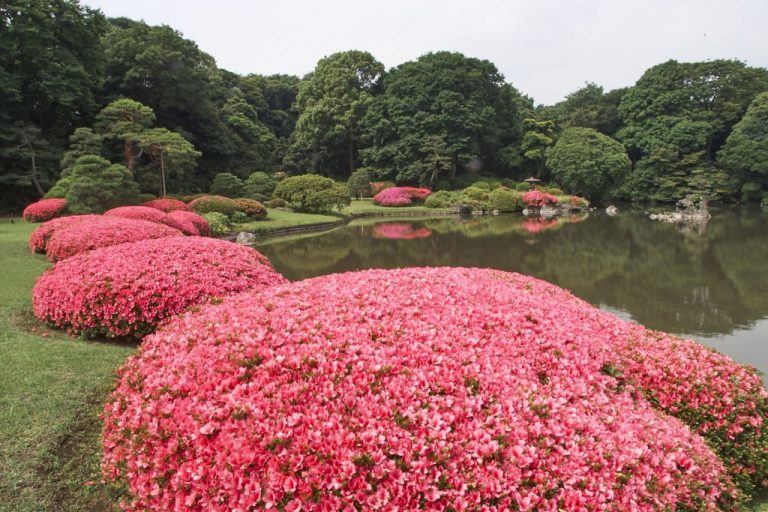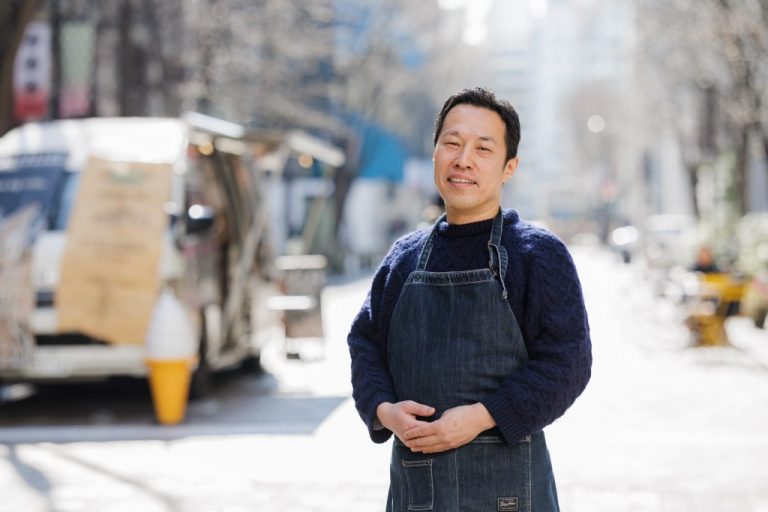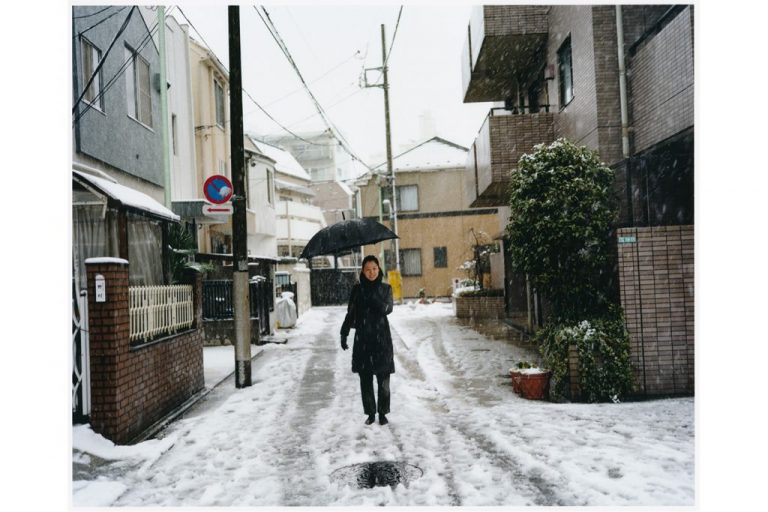Four of the students on the round-table are currently enrolled in the Nihon University College of Art in the Fine Arts, Theatre, and Cinema Departments, three of the university’s many arts departments. The remaining two members are alumni from the university’s Music Department.
Nakazawa: It is hard to find inexpensive shooting locations and places to screen work. It would also help if it were easier for students to find scholarships for creative studies.
Kobari: I want to be a pianist, but it is difficult for performers to find consistent work without promoting themselves. This is why I set up a company that helps performers plan performances and promote themselves.
In terms of artistic work, securing funding and creating opportunities seems to be important. Kishi agrees, “It is important to begin thinking about creating environments and raising money while you are still a student.”
Nitta: I work in oil and digital painting and also write songs and prose. I use all of these to express what I want to say, and I don’t think there’s any reason I need to narrow down the techniques I use.
Kobari: I think there are three types of art students. Those who may be successful in the art world, those who master specialized skills to create their work, and those who enjoy art as an avocation, not an occupation. Keeping these distinctions in mind while you study art may be helpful.
This round-table discussion was a chance for students and alumni to express their true concerns. Kishi offered his opinion, as well, “Perhaps it is important to explore different possible modes of expression and ways to get your work out there.”
Upcoming segments of this column will introduce initiatives at art universities and useful information which students can use.
Japanese original text: Yasuna Asano
Photo: Shu Nakagawa


